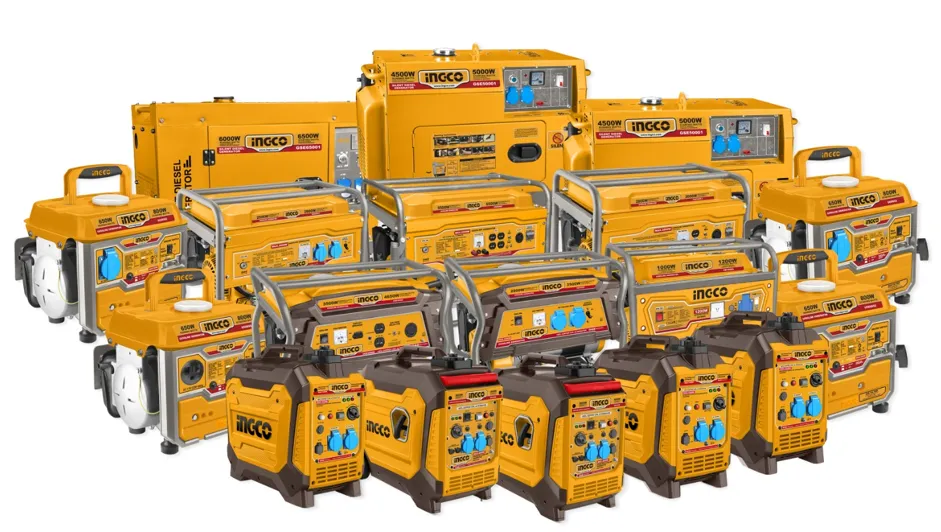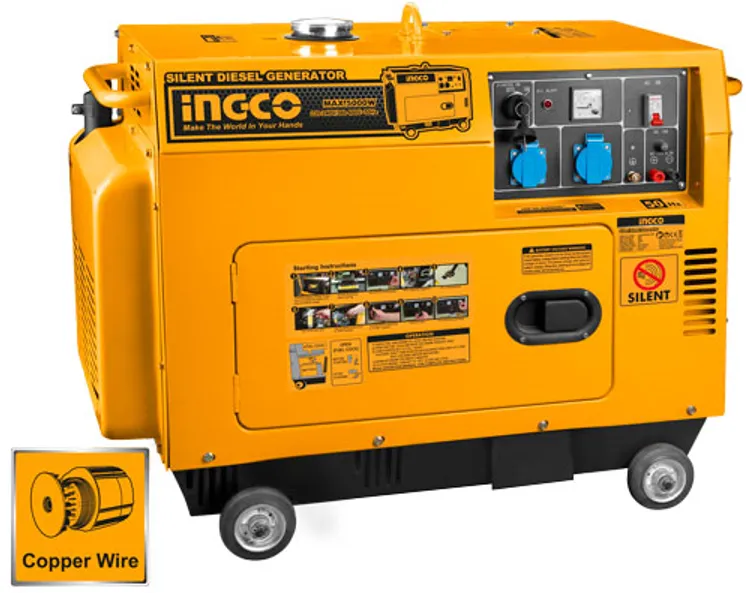What is a Diesel Generator?
Diesel generators are skilled machines widely utilized to supply reliable power in different situations. They are all important for backup power during outages and necessary in areas without an approach to the electrical power grid. A diesel generator is a machine that changes diesel fuel into electricity. It comprises a diesel motor, an alternator, and different parts like fuel, cooling, exhaust, and control panels. Diesel generators are recognized for their strength, efficiency, and power to go for extended periods, making them an authentic power supply in different scenes.
Diesel Generator Working Principle:
The dg generator working principle requires a lot of fundamental steps, such as changing chemical energy in the fuel into mechanical energy and so into electricity. Here are the different steps involved in the DG generator working principle.
- Step 1: Fuel Injection and Combustion
- Step 2: Mechanical Energy Conversion
- Step 3: Electromagnetic Induction
- Step 4: Voltage Regulation
- Step 5: Power Distribution
What are the Applications of Diesel Generators?
Diesel generators have a no matter how you look at it scope of utilizations, providing power arrangements in various industries. A couple of the fundamental applications are:
1. Emergency Backup Power:
Diesel generators are ordinarily used as a emergency power supply during power grid blackouts. They guarantee the progression of execution in critical facilities, for example, medical clinics, data centres, and emergency services.
2. Remote and Off-Grid Places:
In areas without a way to deal with the electric power system, diesel sources act as the essential power source. They are vital for remote communities, development places, and open-air occasions. Diesel sources supply a safe power supply, backing up regular activities where power is not available.
3. Industrial and Commercial Use:
Industries and commercialized establishments trust diesel sources to back up their activities — diesel generators supply power for development processes, relentless hardware, and commercialized appliances. Diesel generators guarantee that organizations can carry on their activities without interruptions, in any case of power failure.
4. Agricultural Sector:
Diesel generators power water system, stock operations, and handling offices in the agricultural area. They empower farmers to keep up with efficiency and guarantee the smooth activity of necessary equipment.
5. Telecommunications and Data Centres:
Telecommunications towers and data centres need persistent ability to keep up with availability and information handling. Diesel generators supply backup capacity to these indispensable systems, guaranteeing continuous activity and forestalling information misfortune. Their reliability and productivity make them a significant piece of cutting-edge correspondence and information systems.
6. Construction Places:
Different diesel generators are for the most part used on building sites to supply power for tools, lighting, and machines. They empower construction to go on without a hitch, even in areas without admittance to the power system. Diesel generators are fundamental for keeping up with efficiency and guaranteeing wellbeing on building sites.

Wind Up:
Diesel generators are central power sources with their different scope of applications. They are reliable to supply power in different organizations and scenarios. Understanding the dg generator working principle includes their significance in changing chemical energy into mechanical and electrical, ensuring a predictable power supply. These generators play really important role in every field.
